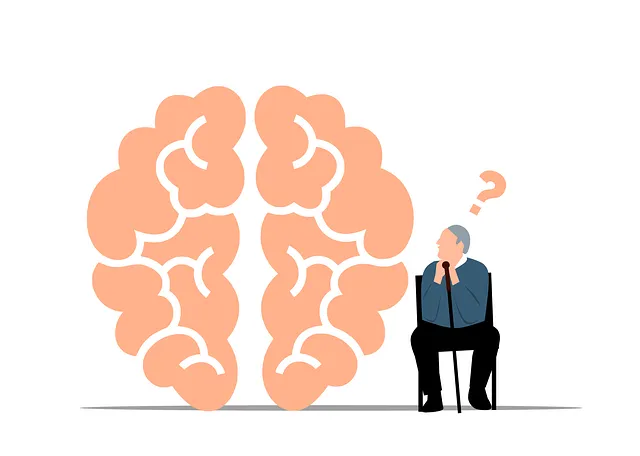Kaiser Permanente's approach to mental health jobs prioritizes emotion regulation as a key component of holistic wellness, especially for high-stress professions like healthcare. They emphasize self-awareness exercises, mindfulness practices (like Mental Wellness Journaling), cognitive reframing techniques, and the importance of self-care. This comprehensive strategy not only enhances individual well-being but also improves patient care and career satisfaction, setting a standard for superior emotional support through training in trauma services, cultural sensitivity, and risk assessment.
Emotion regulation techniques are essential tools for maintaining mental well-being, especially in today’s fast-paced world. This comprehensive guide explores various strategies, focusing on mindfulness, cognitive reframing, and self-care, all of which are vital for emotional control. Inspired by the leadership in Kaiser Permanente Mental Health Jobs, this article offers valuable insights into teaching effective emotion regulation skills, providing a roadmap to superior mental health outcomes. By understanding these foundations, individuals can unlock their resilience and navigate life’s challenges with greater ease.
- Understanding Emotion Regulation: The Foundation for Mental Well-being
- Kaiser Permanente Mental Health Jobs: A Gateway to Teaching Effective Strategies
- Unlocking the Power of Mindfulness: A Core Technique for Emotional Control
- Cognitive Reframing: Restructuring Thoughts for Positive Outcomes
- Practicing Self-Care: Nurturing Resilience and Emotional Balance
Understanding Emotion Regulation: The Foundation for Mental Well-being

Emotion regulation is a fundamental skill that forms the bedrock of mental well-being. It involves recognizing, understanding, and managing our emotional responses effectively. This process begins with self-awareness exercises, where individuals learn to identify their emotions and triggers, setting the stage for healthier reactions. At its core, superior mental health services, like those offered by Kaiser Permanente, emphasize the importance of emotion regulation as a proactive approach to burnout prevention strategies for healthcare providers.
By integrating mind over matter principles, professionals can cultivate resilience and adaptability in the face of challenging situations. This is particularly crucial in high-stress professions such as healthcare, where balancing emotional demands with professional responsibilities is essential. Understanding and practicing these techniques not only enhances individual well-being but also contributes to improved patient care and a more fulfilling career journey.
Kaiser Permanente Mental Health Jobs: A Gateway to Teaching Effective Strategies

Kaiser Permanente Mental Health jobs offer a unique gateway to teaching and implementing effective emotion regulation strategies. As one of the leading healthcare organizations, Kaiser Permanente prioritizes holistic mental well-being, fostering an environment conducive to learning and growth. Through these positions, professionals gain invaluable experience in developing skills like empathy building strategies and navigating complex emotional scenarios with cultural sensitivity.
The organization’s commitment to excellence in mental healthcare extends beyond traditional therapy; it encompasses training and support for staff to handle diverse client populations. This includes learning trauma-support services, ensuring individuals receive care tailored to their unique needs. By embracing these comprehensive approaches, Kaiser Permanente Mental Health jobs set a standard for delivering superior emotional support and guidance.
Unlocking the Power of Mindfulness: A Core Technique for Emotional Control

Mindfulness is a powerful tool that forms the foundation of effective emotion regulation techniques teaching. By cultivating present-moment awareness, individuals can learn to observe their emotions without judgment, a practice endorsed by Kaiser Permanente mental health jobs for its transformative potential. This simple yet profound shift enables people to become more attuned to their inner experiences, fostering a deeper understanding of emotional triggers and patterns.
In the context of emotional control, mindfulness practices encourage individuals to engage in Mental Wellness Journaling Exercises, capturing insights into their feelings and thoughts. This self-reflective process is enhanced by incorporating cultural sensitivity in mental healthcare practice, ensuring inclusive care that respects diverse perspectives. Moreover, a comprehensive Risk Assessment for Mental Health Professionals can be supported by mindfulness training, allowing practitioners to better navigate complex emotional scenarios with enhanced equanimity and clarity.
Cognitive Reframing: Restructuring Thoughts for Positive Outcomes

Cognitive Reframing is a powerful emotion regulation technique that empowers individuals to recognize and challenge negative or distorted thought patterns. By restructuring their thoughts, people can gain a more positive perspective, leading to improved emotional well-being. This strategy involves identifying unhelpful cognitions and replacing them with more realistic and adaptive ones. For instance, someone struggling with anxiety might reframe their thought from “I can’t handle this situation” to “I’ve managed challenging situations before, and I can cope with this too.”
This approach, when taught in Kaiser Permanente mental health jobs or integrated into Mental Health Policy Analysis and Advocacy initiatives, can foster resilience and reduce the impact of stress and negative emotions. Compassion Cultivation Practices and Self-Care Practices also play a significant role in enhancing one’s ability to employ cognitive reframing effectively. By combining these techniques with a supportive environment, individuals can develop a healthier mindset and better manage their emotional responses.
Practicing Self-Care: Nurturing Resilience and Emotional Balance

Practicing self-care is an essential component of emotion regulation and plays a pivotal role in maintaining mental well-being. It involves various activities that nurture resilience, emotional balance, and overall life satisfaction. At Kaiser Permanente, mental health jobs often emphasize this aspect, recognizing its impact on both professionals and their clients. Engaging in regular exercise, healthy eating, adequate sleep, and mindfulness practices can significantly boost one’s confidence and reduce stress levels.
By prioritizing self-care, individuals can enhance their emotional intelligence, making it easier to manage and understand their emotions. This is particularly important for mental health professionals who deal with complex cases daily. It helps them maintain a clear mind, exercise empathy, and provide superior care without burning out. Moreover, self-care practices contribute to a comprehensive risk assessment strategy for these professionals, ensuring they stay grounded and adept at handling challenging situations effectively.
Emotion regulation is a vital skill, and with the right teaching strategies, individuals can unlock their potential for mental well-being. By understanding the foundational concepts discussed in this article, such as mindfulness, cognitive reframing, and self-care, people can effectively navigate life’s challenges. Kaiser Permanente mental health jobs play a significant role in disseminating these superior techniques, enabling folks to lead more balanced and fulfilling lives. Embracing these strategies is a powerful step towards personal growth and resilience.






